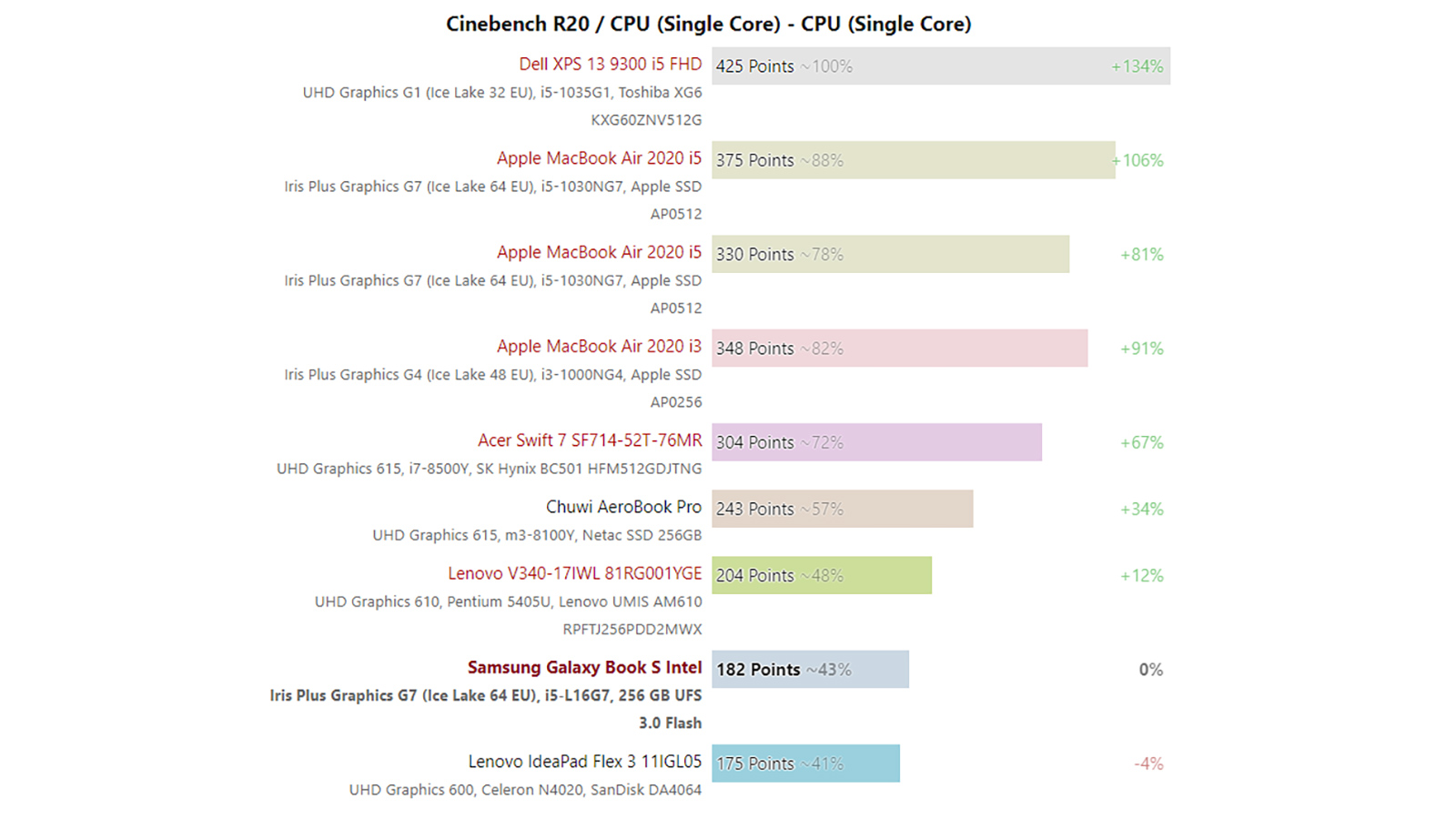A recent benchmark of Intel's Lakefield system-on-a-chip processor could spell trouble for upcoming Microsoft and Samsung products. The processor, which is being marketed as an ultra-low-power hybrid CPU for mobile devices and ultrabooks promises to reach upwards of 3.0GHz, but according to a report from Notebookcheck, the Lakefield chip they tested fell well short of expectations.

(Image credit: Notebookcheck)
Lakefield benchmark shows poor performance for Intel's new SoC
According to the new benchmark, Intel Lakefield doesn't come close to reaching its advertised 3.0GHz. What's more, Intel promised Lakefield would have 12% better single-core performance compared to the Intel Amber Lake processor, but this new benchmark shows that Intel's new SoC falls well short of that expectation as well, ending up a stunning 67% slower than Amber Lake.
Samsung is set to release a version of their Galaxy Book S with the Intel Lakefield CPU, and the Microsoft Surface Neo is expected to use the processor as well. So while the new Intel processor should have improved battery life, if this new benchmark holds up, it's unlikely to compensate for its lackluster performance. That's something neither Samsung nor Microsoft are likely to appreciate – though we can hear Qualcomm grinning from all the way over here.
Continue reading...

(Image credit: Notebookcheck)
Lakefield benchmark shows poor performance for Intel's new SoC
According to the new benchmark, Intel Lakefield doesn't come close to reaching its advertised 3.0GHz. What's more, Intel promised Lakefield would have 12% better single-core performance compared to the Intel Amber Lake processor, but this new benchmark shows that Intel's new SoC falls well short of that expectation as well, ending up a stunning 67% slower than Amber Lake.
Samsung is set to release a version of their Galaxy Book S with the Intel Lakefield CPU, and the Microsoft Surface Neo is expected to use the processor as well. So while the new Intel processor should have improved battery life, if this new benchmark holds up, it's unlikely to compensate for its lackluster performance. That's something neither Samsung nor Microsoft are likely to appreciate – though we can hear Qualcomm grinning from all the way over here.
Continue reading...

